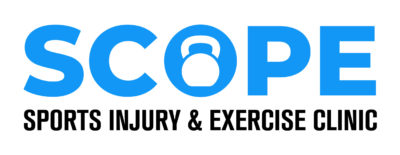Specific Adaptation to Imposed Demands (SAID)
The SAID principle is a vital piece of knowledge to understand. This principle describes the evolution of our body and can be a fantastic insight into understanding our daily habits. The SAID principle shows how we evolve on a daily basis and how our bodies mold to the things we do every day. Ever wondered why your shoulders are rounded and sit forward? Ever wondered why you used to be able to do the splits or touch your toes but cant do it now? Ever wondered why you struggle to stand for more than 20 minutes without your back hurting? Our bodies have specifically adapted to the demands imposed every day and as a result have decided that what you used to be able to do is now no longer needed. Use it or lose it.
Often we are so fixated on the positions or movements that cause us pain that we don’t stop to read between the lines and think about the other 90% of our day that has led to the inability to move in this positions. If I get pain when standing for more than 20 minutes is this because of standing or because I spend most of my life sitting or lying down and have now lost the ability to stand for 20 minutes? If I get pain when lifting my arms over my head is it because of my shoulder or the fact I very rarely move my arms into this position and again, have lost the ability to do so.
In the beginning we were born with a body that was a blank canvas. We could do whatever we wanted with this body and it had very few limitations. We would play in all kinds of different positions and never have any issues. As the years progressed we started to sit more, do less and look as exercise as something we do maybe 3 times a week. Our bodies will adapt to what we ask it to do. If we ask it to sit 40 hours a week it will mould to that position. Our hip flexors become short, we shut off our core and glute muscles, our shoulders round and our head sits forward. On the flip side if we ask it to lift weights every day it will adapt by building strength in the bones, muscles and connective tissue.
Our bodies adapt to the things we do most commonly. This principle works both ways, if you have poor daily habits of sitting or slouching excessively you can expect your body to adapt to that. If you are a yogi you can expect your body to have good flexibility and motor control. If you cycle every day you can expect good cardiovascular fitness. Your body is capable of change, in fact that is what it does best!
Our bodies are not made to be static. They were built to move in many directions and the more you practice moving the better you will get at it. Start ingraining more movements into your day and your body will adapt accordingly. Find a movement teacher such as a yoga or pilates instructor. Start martial arts. These disciplines are based around learning to move well and are based around discipline and practice. The body changes with time and repetition and as I said earlier adaptation is what the body does best.
Recommended reading:
- Spark: The revolutionary new science of exercise and the brain. John Ratey.
2.The story of the human body: evolution, health and disease by Daniel Lieberman
3. A Guide to better movement. Todd Hargrove
